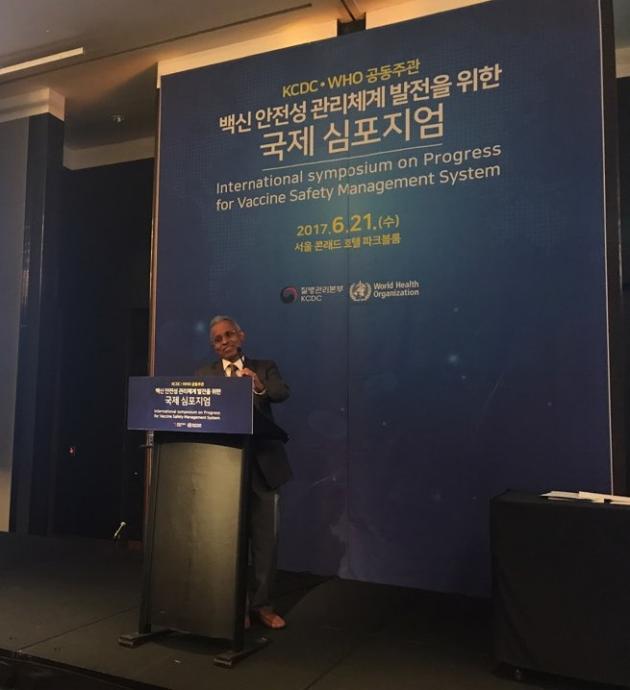KCDC co-hosts 1st international workshop on vaccination with WHO
“Vaccine hesitancy” refers to a delay in acceptance or outright refusal of vaccines despite the availability of services.
As a complex, multilayered and context-specific phenomenon varying across time, place, and vaccines, vaccine hesitancy is influenced by three factors called the “3Cs”: complacency, convenience, and confidence.
Anti-vaccine groups exist all over the world, such as FACTOLL in the United States, an Internet community that spreads false scientific information regarding vaccines. Korea also recently dealt with an obscure online community called Anaki, which not only questioned the effectiveness of vaccines but actively purported false myths about them while choosing “natural” treatments instead.

It is against this backdrop the Korea Centers for Disease Control and Prevention (KCDC) held the international symposium on “Vaccination safety management and communication” Wednesday to cover the current issues surrounding vaccine hesitancy.
KCDC has taken extra steps to gain the public’s trust about vaccines, making sure to actively monitor the side effects of HPV vaccines reported to the government institution and following up with the affected patients, an official said.
Despite national efforts to curb rumors surrounding vaccines, antivaccine groups have pushed back with equal force with scientific papers regarding the side effects of vaccines. The KCDC pointed out the problems they have had in addressing this issue, saying that they have not been able to counter the antivaccine groups’ scientific papers with their research.
In the symposium, Dr. Anada Amarasinghe from the World Health Organization said one must “go into specifics when dealing with vaccine hesitancy. These anti-vaccine groups often present what looks like scientific evidence; however, when you take the time to analyze their studies, you can most often find that they have erroneous research frameworks, procedures, and sample studies that render the result insignificant.”
Amarasinghe emphasized the importance of communication, saying that the scientific community needs to listen to, not ignore, the cries from these communities.
“We must respect others to express their own opinions,” Amarasighe said. “Read what the antivaccine groups are reading. Be prepared for communication. Never think that you the expert and you can answer any question that comes to the table. Nowadays we have access to social media and information. Be smart to use all these accesses positively.”
Amarasinghe advocated first identifying the particular group of people, finding their reasons for being against vaccines, and then planning a country-specific, group-specific strategy to abolish dangerous practices or beliefs.
Dr. Syed Shah, also from the World Health Organization, introduced a specific example about religious groups: “One of the personal examples WHO dealt with was religious groups. If you identify the hesitancy group as a religious one, try to negotiate with the religious leader to discuss the impact of a contagious disease to the whole community. You must convince them with affection but also be firm when necessary.”
Most experts from WHO advocated the practice of applying different strategies to various groups.
“It’s high time to think differently,” Amarasinghe added, saying that it is okay to agree to disagree. “Before you blame others for what is happening, it’s crucial to retake a step and look at your part in contributing to the situation.”

